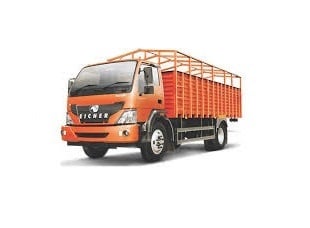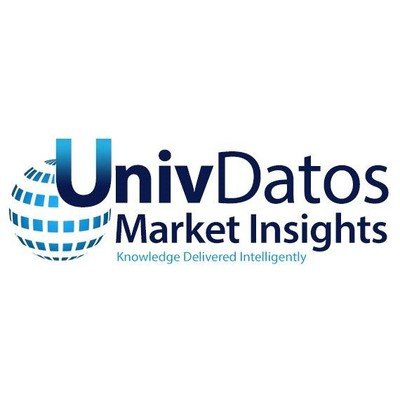
The proliferation of E-Discovery vendors and solutions in the marketplace is making it increasingly difficult for organizations to make informed decisions on discovery solutions that will satisfy their legal and review requirements. These "Ten Hard Questions To Ask Your E-Discovery Vendor" will arm you with the knowledge and tools to select a solution that is right for your organization.
Question 1: For the archiving platform, does the vendor offer integrated solutions for e-discovery, records management, compliance and storage management?
You must ask yourself whether your organization will need to implement, in the next 10 years, two or more of the above applications. If the answer is yes, then you need to look for an integrated platform, not a point solution. Otherwise, you may end up with costly replacement and migration costs.
Question 2: For the archiving system and applications, has the vendor acquired or licensed third party components? Is every line of source code under vendor control?
Archiving is one of the most challenging applications in the enterprise in terms of scaling and complex handling. Vendor control of 100% of the source code is absolutely essential to integrated design, quick diagnosis, and fast fixes. If third party or acquired code is involved, seamless integration and scaling will be very hard to achieve. And when trouble occurs, you may see a lot of finger-pointing and a longer time to problem resolution.
Question 3: How many file formats does the archive handle?
As e-discovery, records management and compliance begin to include more and more data across the enterprise, it is essential that the archiving system must be able to handle ALL the popular data formats, such as pdf, Microsoft Word, PowerPoint, Excel, fax, mobile, etc. Otherwise, the archive is only partially effective and you may need to deploy multiple archives.
Question 4: Does the vendor support "One Data Copy, One Policy" across all archiving applications?
It is desirable to maintain "One Data Copy" which means that multiple data copies are de-duplicated and reduced to one data copy. This saves significantly on storage and administration, especially in e-mail and files. Note that true de-duplication or Single-Instance Storage ("SIS") is still a rarity in the industry, so you should be cautious about vendor claims. Even more important is the ability to define and enforce a single "Unified Policy" - without this capability, data deleted in one application may not be deleted in another, leading to embarrassing and costly situations in e-discovery.
Question 5:
Which search engine is the vendor using and what is its expected life span?
If the search engine has a limited life, the problems and costs for you become very significant. For example, AltaVista was "end-of lifed" five years ago, but still remains the underlying search engine for several major archiving vendors. When, not if, the AltaVista engine is replaced, the costs and headaches of either a wholesale data migration or running two different archives with different search engines will quickly become prohibitive. Tip: One way to minimize your risk is to ask for written assurance from vendors using AltaVista that should there be a replacement of AltaVista in the next five years, the vendor will bear the cost of migrating your data. If the vendor balks, you should reconsider your options.
Question 6: Does the vendor offer "Grid" architecture?
It is practically guaranteed that the volumes of email archiving will stress the archiving solution to breaking point. To avoid scaling problems, you should ensure that the archive solution is based on a grid architecture which is designed to spread the processing load evenly across all computing resources. Without the grid, you run the risk of single points of failure, severe lack of scalability and wasted resources. Consequences include slow data ingestion; slow data export; slow searches; slow indexing, and so on.
Question 7: How are the archive's search speed, accuracy and completeness?
Archiving is not about storing, it is about finding. After all, what you can't find is meaningless to store. The search engine embodies the heart of the archive's capabilities. You should ascertain the following search capabilities: (a) Search Speed - A few archives can search through a billion documents for a random key word in less than a minute, but the majority can take days or weeks; (b) Search Accuracy involving Proximity - The archive must be able to perform proximity searches (e.g., "guarantee" within 5 words of "returns"); (c) Search Accuracy involving Word Order - The archive must return the same results if the word order is reversed (e.g., "returns" within 5 words of "guarantee"); (d) Search Completeness - The archive must show that it searched through 100% of the intended target data and prove it. Since very few products in the marketplace can offer search speed, accuracy and completeness, you should be particularly vigilant about validating these capabilities.
Question 8: Can the archive provide 100% accountability for data capture and searches? Does it provide index reconciliation reports?
The archive faces major challenges in capturing 100% of the data; indexing 100% of the data; and searching through 100% of the data. More importantly, the archive must be able to prove the foregoing. While very few vendors are able to do so, most will claim it. One way to screen out the pretenders is to simply ask for index reconciliation reports, which compare the results of what went in versus what came out and thereby account for the discrepancies. It is somewhat akin to taking "trial balances" in accounting. If the vendor does not provide index reconciliation reports, it is likely it does not provide 100% accountability.

- With free car removal service we come to your location and help you get rid of your vehicle for cash right away. No need to wait days to get your vehicle back.

- depending upon the best transport in Bangalore is a great idea on the behalf of people so that multiple advantages can be easily availed in the long run.

- Use of voice assistance devices such as Alexa, Siri, Google Assistant, and Cortana for voice shopping have increased over the past few years

- harder to make a deal and convince someone you deserve a better price on a vehicle if you are draped in expensive clothing. While you want to appear neat and ct